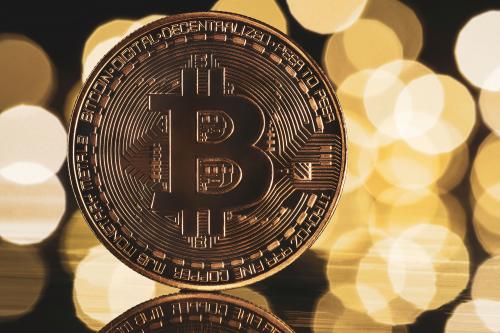Bitcoin, the original cryptocurrency, has been on a wild ride since its creation in 2009. Earlier this year, the price of one Bitcoin rose to more than $60,000, an eightfold increase in 12 months. Then within a few weeks it fell to half that value. Values of other cryptocurrencies like Dogecoin have risen and fallen even more sharply, often just on Elon Musk’s tweets. Even after the recent drop in their prices, the total market value of all cryptocurrencies now exceeds $1.5 trillion, a staggering amount for virtual objects that are nothing more than computer code.
Are cryptocurrencies the wave of the future and should you use and invest in them? And do the massive swings in their prices — nearly $1 trillion wiped off their total value in May — portend trouble for the financial system?
Bitcoin was created (by a person or group unidentified to this day) as a way to carry out transactions without the intervention of a trusted third party, such as a central bank or financial institution. Its emergence amid the global financial crisis, which shook confidence in banks and even governments, was perfectly timed. Bitcoin enabled transactions using only digital identities, granting users a measure of anonymity. This has made Bitcoin the currency of choice for illegal activities, including recent ransomware attacks. It fueled the shadowy darknet of illegal online commerce, just as PayPal helped the rise of eBay by making payments easier.
While Bitcoin’s rollercoaster prices attract attention, the revolution in money and finance it has set in motion is of far greater importance, one that will ultimately affect each of us, for better or worse.
As it grew in popularity, Bitcoin became cumbersome, slow and expensive to use. It takes about 10 minutes to validate most transactions with the cryptocurrency and the transaction fee has been at a median of around $20 this year. Bitcoin’s unstable value has also made it an unviable medium of exchange. It’s like your $10 bill can buy you a beer one day and a bottle of fine wine on another.
Moreover, it has become clear that Bitcoin does not offer true anonymity. The government’s success in tracking and recovering part of the Bitcoin ransom paid to the hacking collective DarkSide in the Colonial Pipeline ransomware attack has raised doubts about the security and untraceability of Bitcoin transactions.
While Bitcoin failed in its stated goals, it became a speculative investment. It is puzzling. It has no intrinsic value and is not backed by anything. Bitcoin fans will tell you that its value, like gold, comes from its scarcity – Bitcoin’s computer algorithm requires a fixed limit of 21 million digital coins (almost 19 million have been created so far). But scarcity in itself can hardly be a source of value. Bitcoin investors seem to rely on the greater fool theory – all you need to profit from an investment is to find someone willing to buy the asset at an even higher price.
Despite their high valuations on paper, a collapse of Bitcoin and other cryptocurrencies is unlikely to rattle the financial system. Banks mostly stayed on the sidelines. As with any speculative bubble, naive investors who come late to the party run the greatest risk of losses. The government should definitely warn retail investors that, just like in the GameStop saga, they do so at their own risk. Securities that enable speculation on Bitcoin prices are already regulated, but there is not much more the government can or should do.
Bitcoin is not harmless. Transactions are processed by “miners” who use massive amounts of computing power in exchange for rewards in the form of Bitcoin. According to some estimates, the Bitcoin network consumes as much energy as entire countries like Argentina and Norway, not to mention the mountains of electronic waste from specialized machines used for such mining operations that quickly burn out.
Whatever Bitcoin’s ultimate fate, its blockchain technology is truly ingenious and groundbreaking. Bitcoin showed how programs running on computer networks could be harnessed to make payments, within and between countries, securely, without relying on greedy financial institutions charging high fees. For migrant workers who send remittances back to their home countries, for example, such fees are a huge burden. Technologies that make payments cheaper, faster and easier to track will benefit consumers and businesses, facilitating both domestic and international trade.
The technology is not without risks. Facebook is planning to issue its own cryptocurrency called Diem which is meant to make digital payments easier. Unlike Bitcoin, Diem will be fully backed by reserves of US dollars or other major currencies, ensuring stable value. But, as with its other seemingly high-minded initiatives, Facebook can hardly be trusted to put the public’s welfare ahead of its own. The prospect of multinational corporations issuing their own unbacked cryptocurrencies worldwide is deeply disturbing. Such currencies would not threaten the US dollar, but could wipe out the currencies of smaller and less developed countries.
Variants of Bitcoin’s technology also make many financial products and services available to the masses at low cost, directly connecting savers and borrowers. These developments and the possibilities created by the new technology have prompted central banks to consider issuing digital versions of their own currencies. China, Japan and Sweden are already conducting trials of their digital currencies.
Ironically, rather than truly democratizing finance, some of these innovations may exacerbate inequality. Unequal financial literacy and digital access can lead to sophisticated investors reaping the benefits while the less fortunate, blinded by new technologies, take risks they don’t fully understand. Computer algorithms can exacerbate, rather than reduce, entrenched racial and other biases in credit scoring and financial decisions. The ubiquity of digital payments can also destroy any remaining vestiges of privacy in our daily lives.
While Bitcoin’s rollercoaster prices attract attention, the revolution in money and finance it has set in motion is of far greater importance, one that will ultimately affect each of us, for better or worse.
Disclaimer for Uncirculars, with a Touch of Personality:
While we love diving into the exciting world of crypto here at Uncirculars, remember that this post, and all our content, is purely for your information and exploration. Think of it as your crypto compass, pointing you in the right direction to do your own research and make informed decisions.
No legal, tax, investment, or financial advice should be inferred from these pixels. We’re not fortune tellers or stockbrokers, just passionate crypto enthusiasts sharing our knowledge.
And just like that rollercoaster ride in your favorite DeFi protocol, past performance isn’t a guarantee of future thrills. The value of crypto assets can be as unpredictable as a moon landing, so buckle up and do your due diligence before taking the plunge.
Ultimately, any crypto adventure you embark on is yours alone. We’re just happy to be your crypto companion, cheering you on from the sidelines (and maybe sharing some snacks along the way). So research, explore, and remember, with a little knowledge and a lot of curiosity, you can navigate the crypto cosmos like a pro!
UnCirculars – Cutting through the noise, delivering unbiased crypto news















